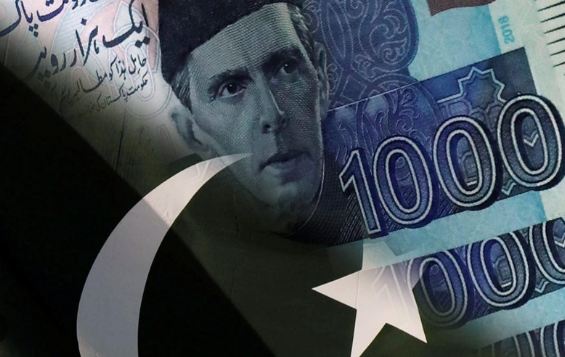ISLAMABAD, SEP 25 (DNA) — Pakistan’s economy faces a concerning challenge as its tax-to-GDP ratio stands at a mere 10.4%, according to a report released by the World Bank.
The report, titled “Strengthening Government Revenues,” highlights the significant gap between the country’s tax collections and its tax capacity, which is estimated at over 22% of GDP. This decline in the tax-to-GDP ratio is attributed to rising tax expenditures, particularly at the federal level.
In the fiscal year 2022, Pakistan’s tax collections reached only 10.4% of GDP, a trend that has been steadily declining. The federal government’s tax expenditures increased from 1.3% of GDP in FY16 to 2.7% of GDP in FY22, putting further strain on revenue generation efforts.
Heavy reliance on indirect taxes
The report also highlights that the majority of revenues in Pakistan are collected at the federal level, primarily through indirect taxes on consumption.
These indirect taxes include sales tax, customs duties, and excises. In FY22, the federal government accounted for 91.2% of tax collection, partly due to increased taxation of services by provincial governments. Direct taxes, collected by the federal government, make up only around 33% of total taxes collected.
One of the key challenges noted in the report is the minimal revenue generated from agricultural income tax, with over 90% of farmers falling below the tax threshold. Additionally, total provincial revenue collection remains less than 1% of GDP.
World Bank’s recommendations for reform
To address these challenges and enhance revenue generation, the World Bank has launched a new program titled “Reforms for a Brighter Future: Time to Decide.”
The program offers several recommendations, including: Improving Federal-Provincial Coordination: Enhancing coordination between federal and provincial governments to streamline tax administration and policy reforms; Harmonizing Tax Bases: Creating a single tax market and reducing interactions between taxpayers and revenue authorities within the existing constitutional framework; Digitization Efforts: Expediting ongoing digitization initiatives to reduce compliance costs and minimize taxpayer interactions; Closing Corporate and Personal Income Tax Exemptions: Eliminating exemptions in the energy sector, power generation projects, and real estate investments to generate additional revenue; Increasing Excise Duties on Harmful Goods: Implementing uniform excise duties on items such as cigarettes, with automatic inflation adjustments, to generate more revenue; Reviewing COVID-19 Exemptions: Reevaluating costly exemptions introduced during the pandemic, including those in the pharmaceutical, energy, and food sectors; Eliminating Exemptions on Essential Food Items: Considering the removal of exemptions for essential food items like oil, pulses, animal products, fruits, and dairy; and Reevaluating Concessionary Rates on Fertilizers: Reducing fiscal costs by reevaluating concessionary rates on fertilizers.
The World Bank’s recommendations provide a roadmap for Pakistan to strengthen its revenue generation efforts and address fiscal challenges effectively. With significant potential for improvement in taxation, policymakers are urged to consider these reforms to boost the country’s economic stability.
Najy Benhassine, the Country Director for Pakistan at the World Bank, emphasized the importance of open debates on concrete policy decisions to achieve inclusive, sustainable, and climate-resilient development.
As part of the “Reforms for a Brighter Future” engagement program, the World Bank, in collaboration with the Pakistan Institute of Development Economics, conducted extensive consultations across the country to gather inputs and feedback on the proposed recommendations. The program will continue with online and in-person events in the coming months.

















